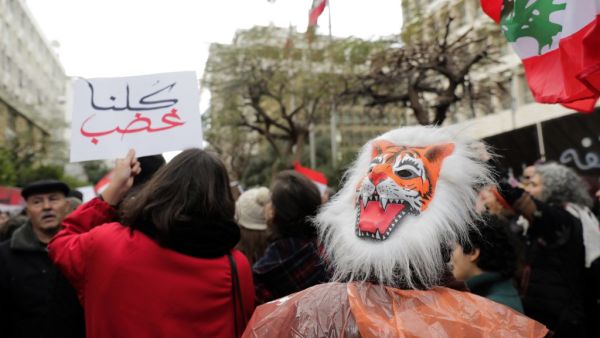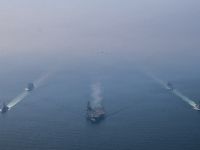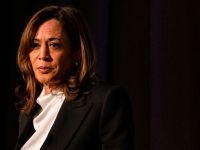The first week of the New Year ended without the formation of a new government to rescue Lebanon from an economic crisis. The process of forming a government still faces obstacles, including the refusal of three main parties to participate in it: The Future Movement, the Progressive Socialist Party and the Lebanese Forces Party.
President Michel Aoun said a government could be formed next week. His media adviser Rafiq Shalala told Arab News: “There are changes in the names of Christian figures and some Muslim figures underway. There’s an attempt to rearrange the names after the portfolios were distributed to all parties. Work is underway to substitute some of the names with others.”
There have been many leaks regarding names that have been chosen to participate in the government, which will consist of only 18 ministers.
The issue of the participation of some of them has been settled, while others have faced objections from influential parties.
Tarek Mitri, a former minister, told Arab News that it is unlikely that regional developments will have “a direct impact on the formation of the government.”
He said: “The rules for forming a government are constantly changing, and the parties in power practice their old habits … What people expect from the authority hasn’t been taken into account.”
He added: “The parties are choosing new acceptable faces, but since the beginning of the discussion about forming a government, we haven’t heard a useful sentence about … how to deal with the problems that Lebanon is facing, as if politics just means fighting for Cabinet seats and the remnants of power.”
Activist Nemat Bader Al-Deen told Arab News that the “vacuum” regarding forming a government is “harmful, especially in light of the current economic crisis.”
He said activists are “following leaks about the names of the personalities that may be part of the government. We can’t determine our position on them before we know who they are.”
Prime Minister-designate Hassan Diab is continuing his political meetings to overcome the remaining obstacles and reservations about some names.
Meanwhile, the political community is waiting to see whether Hezbollah Secretary-General Hassan Nasrallah will link government formation with the US assassination of Iranian Maj. Gen. Qassem Soleimani in Baghdad on Friday.
MP Fadi Karam, secretary of the Strong Republic parliamentary bloc, said: “We as Lebanese, if we’re aware of the interest of our country, shouldn’t let regional events affect our internal situation.”
He added: “Our sole goal should be to save the economic situation we’re going through, regardless of what happens in the region.”
He said: “We as Lebanese can’t bear the repercussions of these events on our internal situation. As Lebanese, we must agree to keep Lebanon neutral, because if a team decides to continue linking Lebanon to regional events, this would have severe consequences for the country.”
This article has been adapted from its original source.








